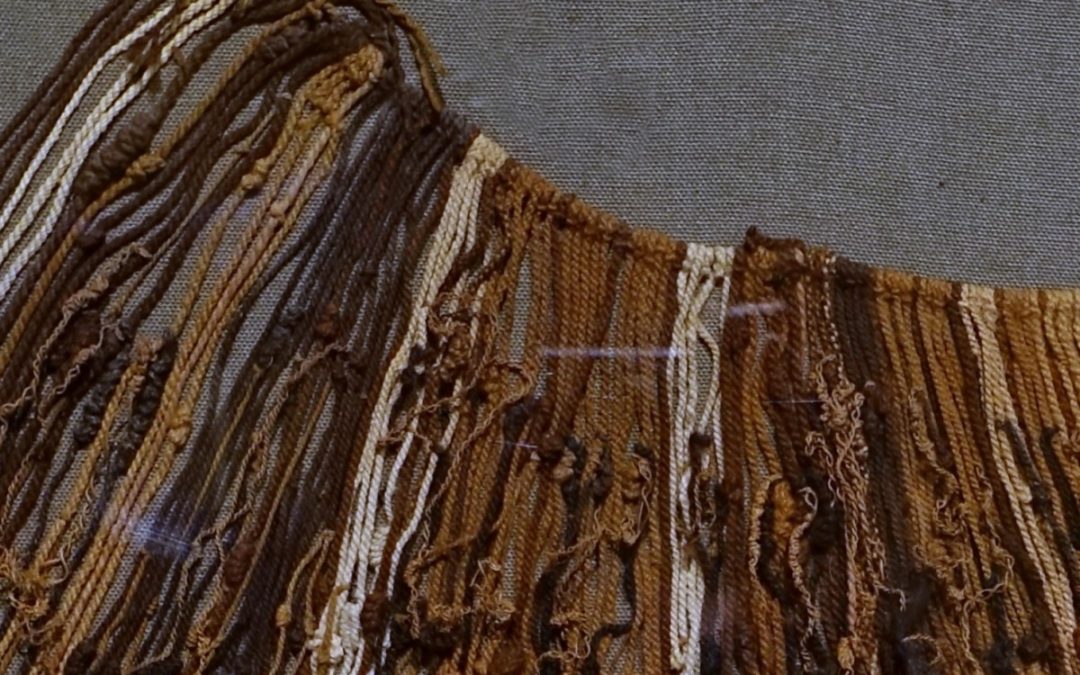
by Richard Subber | Mar 30, 2023 | American history, Book reviews, Books, History, Politics, Power and inequality
Tell yourself the truth…
Book review:
Upheaval: Turning Points for Nations in Crisis
by Jared Diamond (b1937)
New York: Little, Brown and Company, 2019
Diamond’s Guns, Germs, and Steel won a Pulitzer Prize in 1998.
502 pages.
Diamond delivers a knock-out with every one of his books. Upheaval is no exception.
Diamond fully backs up his frank and frightening assessment of the United States in its current crises.
America and Americans have many strengths, including our geographic stronghold and our democratic traditions. We’re facing many fault lines, not least of which is our increasingly paralyzing political polarization and refusal to embrace sensible compromise to get good things done for all Americans. Repeat for effect.
Upheaval is not a feel-good book. It is a call to action, with a credible road map and many reasons to fear our failure to face up to our crises.
* * * * * *
Book review. Copyright © Richard Carl Subber 2023 All rights reserved.
Book review: Shakespeare’s Wife
Germaine Greer went overboard a bit…
–
My first name was rain: A dreamery of poems with 53 free verse and haiku poems,
and the rest of my poetry books are for sale on Amazon (paperback and Kindle)
and free in Kindle Unlimited, search Amazon for “Richard Carl Subber”
* * * * * *

by Richard Subber | Mar 25, 2023 | Language, My poetry, Poetry
a kind of music of the spheres…
Overture
I stood awhile in prescient dark,
faint sounds of night
were near and far,
a rustling song,
a sylvan chord,
a tiny thrum,
and more—
a downbeat for the dawn to come,
scant chorus rising,
I whispered hallowed words
to make a coda,
and waited for the star of day.
January 21, 2023
Inspired by “Behind Stowe” (1927) by Elizabeth Bishop (1911-1979)
* * * * * *
My poetry. Copyright © Richard Carl Subber 2023 All rights reserved.
A poem about the right thing
…and the lesser incarnation…
“Vanity”
–
My first name was rain: A dreamery of poems with 53 free verse and haiku poems,
and the rest of my poetry books are for sale on Amazon (paperback and Kindle)
and free in Kindle Unlimited, search Amazon for “Richard Carl Subber”
Your comments are welcome—tell me what you’re thinking.
* * * * * *

by Richard Subber | Mar 15, 2023 | American history, Book reviews, Books, History, Power and inequality
guns and germs…
Book review:
1491:
New Revelations of the Americas Before Columbus
by Charles Mann
New York: Vintage Books, 2011
1491 offers everything you never knew about civilized people in the Americas before the Europeans arrived and killed most of them (OK, many died in battle, but it was European diseases, mostly). Maybe close to 100 million “native” people died within 100 years or so of the “discovery” by Columbus…but hold on, this book is not about Wounded Knee-type criticism or ex post facto self-flagellation.
In 1491, Mann beautifully describes the marvelous sophistication of cultures, cities, agriculture, arts, and science that blossomed in North America, Central America, and South America thousands of years ago, in many cases predating achievements and growth and civilization in Europe.
Yes, the Incas never used the wheel except for children’s toys.
Yes, the Mississippian city of Cahokia was a bustling port and a trading center with population equal to Paris in France—and that was 500 years before Columbus sailed.
Yes, the Olmec culture in what is now Mexico invented the zero whole centuries before mathematicians in India did the same.
My recollection of schoolboy learning about the history of the Americas is that the dates and events were tied to discovery and conquest and colonization by Europeans. The implication was that, before the white men with guns, germs and steel arrived, nothing much was going on in whole continents characterized more by “virgin land” and “endless wilderness” than by people who had agriculture, city life, art, trade, commerce, religion, science, kings, and philosophers.
Mann offers 1491: New Revelations of the Americas Before Columbus. For me, the joy of reading this book is learning about the multiplicity of cultures that flourished in the Americas, and learning how they tamed and managed and very greenly conserved their environment…and for me, the sad revelation of this book is understanding that the peoples of the Americas were human beings whose achievements were noble and notable, and yet, lamentably, their cultural legacies are largely lost and the losses are barely mourned.
In 1533 Pizarro and his conquistadors at Cuzco precipitated the decline of the 300-year-old Inca empire in Peru. Fifty years later, the Spanish colonial administrators in Peru ordered the burning of all the Incan “khipu” knotted string records because they were “idolatrous objects.” Khipu were the Incas’ only form of writing. The smoke from the burning of their books gets in your eyes, forever and ever.
* * * * * *
Book review. Copyright © Richard Carl Subber 2023 All rights reserved.
Book review: The Sea Runners
…it informs, it does not soar…
by Ivan Doig
–
Seeing far: Selected poems with 47 free verse and haiku poems,
and the rest of my poetry books are for sale on Amazon (paperback and Kindle)
and free in Kindle Unlimited, search Amazon for “Richard Carl Subber”
* * * * * *

by Richard Subber | Mar 10, 2023 | Book reviews, Books, History, Politics, Power and inequality, World history
an informed passivity…
Book review:
The Last European War:
September 1939-December 1941
by John Lukacs
New Haven, CT: Yale University Press, 1976.
The Last European War is a typical scholarly Lukacs work, with high clarity insights and no inhibitions about expressing his informed critique of the work of other historians.
Lukacs illuminates the events, the leadership and the popular sentiments of national populations during the period leading up to the start of World War II and the initial conflict prior to the entry of the United States into the war in December 1941. I point to the word “national” to note the emphasis explained by Lukacs in The Last European War, based on his interpretation that national sentiments were of paramount importance in shaping both the popular reaction to war and the popular attitudes toward the conflict.
A strong impression: The people and leaders who were living through this turmoil had only marginal appreciation of the effectiveness and impact of their actions. Nevertheless, the Nazis’ rise to power was significantly facilitated by the passivity (an informed passivity, not a state of ignorance) of too many individuals who didn’t advocate a morally-framed opposition.
* * * * * *
Book review. Copyright © Richard Carl Subber 2023 All rights reserved.
Book review: Saint Joan
the heart of a saint
by George Bernard Shaw
–
Seeing far: Selected poems with 47 free verse and haiku poems,
and the rest of my poetry books are for sale on Amazon (paperback and Kindle)
and free in Kindle Unlimited, search Amazon for “Richard Carl Subber”
* * * * * *

by Richard Subber | Mar 5, 2023 | American history, Book reviews, Books, History
they weren’t heroic…
Book review:
Go Down Together:
The True, Untold Story of Bonnie and Clyde
by Jeff Guinn (b1951)
New York: Simon and Schuster, 2009
467 pages
Newspaper coverage in the early 1930s turned Bonnie Parker and Clyde Barrow into nationwide celebrities. Movies and books have perpetuated the carelessly positive news coverage, and the often fictional heroic antics of the crime duo.
The matter-of-fact treatment in Go Down Together makes the unvarnished reality more clear: Bonnie and Clyde were wacky, violent, and vicious criminals who killed 13 people and spent their 21-month crime spree on the run, mostly living “…the mundane, routine Barrow Gang misery of camping in cars and dining on cans of cold beans.”
They were killed in an ambush on May 23, 1934, in Louisiana. Several officers of the law fired about 160 bullets at them in less than 20 seconds—neither Bonnie nor Clyde fired a single shot.
Nothing about them makes a pretty picture.
* * * * * *
Book review. Copyright © Richard Carl Subber 2023 All rights reserved.
We Were Soldiers Once…and Young
…too much death (book review)
Lt. Gen. Harold G. Moore (ret.)
and Joseph L. Galloway
–
As with another eye: Poems of exactitude with 55 free verse and haiku poems,
and the rest of my poetry books are for sale on Amazon (paperback and Kindle)
and free in Kindle Unlimited, search Amazon for “Richard Carl Subber”
* * * * * *




